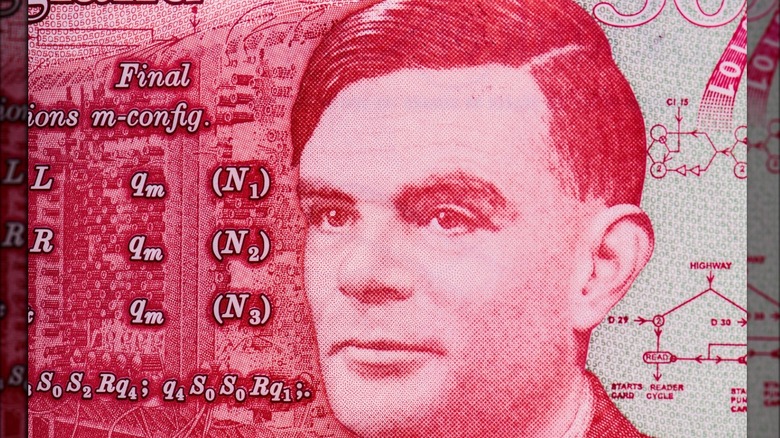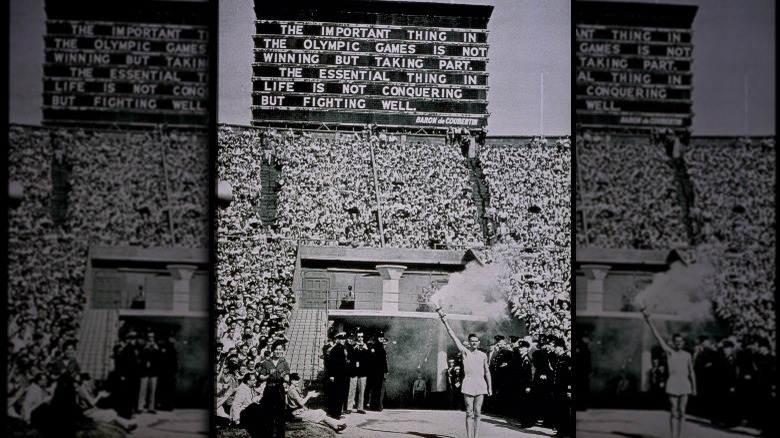How Alan Turing Nearly Made It To The Olympics
One of the brightest minds of his time, Alan Turing was a talented mathematician and cryptographer who gave the Allies a key advantage during World War II when he broke the Nazi Enigma code (via PBS). Away from his calculations, equations, and codes, he had a great athletic drive. Turing had a remarkable talent as a runner, and the practicality of the sport appealed to him. According to Mental Floss, Turing was known to run between Cambridge and Ely during his days as a fellow at King's College. That's a distance of roughly 31 miles!
During World War II, Turing often used his feet as his preferred mode of transportation. He liked to run between the National Physical Laboratory and the electronics building on Dollis Hill, his two primary workplaces. Turing ran the 10-mile distance faster than his co-workers could get there using public transportation. Sometimes he took on the longer challenge of running from London to Bletchley Park — a 40-mile journey.
Turing was invited to the Walton Athletic Club after one of the members spotted him out for a jog. According to Andrew Hodges, the author of "Alan Turing: The Enigma," a fellow club member remembered that Turing was quite an unusual character, known for making "a terrible grunting noise when he was running." But he turned out to be the club's "best runner."
Alan Turing tried out for 1948 Olympics
For Turing, running provided the ultimate stress relief. He told another member of the Walton Athletic Club that "I have such a stressful job that the only way I can get it out of my mind is by running hard" (via Andrew Hodges). It may be surprising to those that only know Turing for his intellectual accomplishments to learn that he managed to achieve remarkable times on his runs. During the 1947 Marathon and Decathlon Championships, he ran the marathon in 2 hours, 46 minutes, and 3 seconds — his best time for this distance.
Turing was such a strong runner that he tried out for the British Olympic team for the 1948 Olympics. He came in fifth place, however, during the trials, according to the Guardian newspaper. These games were held in London and Turing ultimately watched the events as a spectator. Thomas Richards won the silver medal for Britain in the marathon with a time of 2 hours 35 minutes, which was only an 11-minute difference from Turing's best time for the event. According to Andrew Hodges' update to his book "Alan Turing: The Enigma," Turing had even finished ahead of Richards in a cross-country race that same year.

